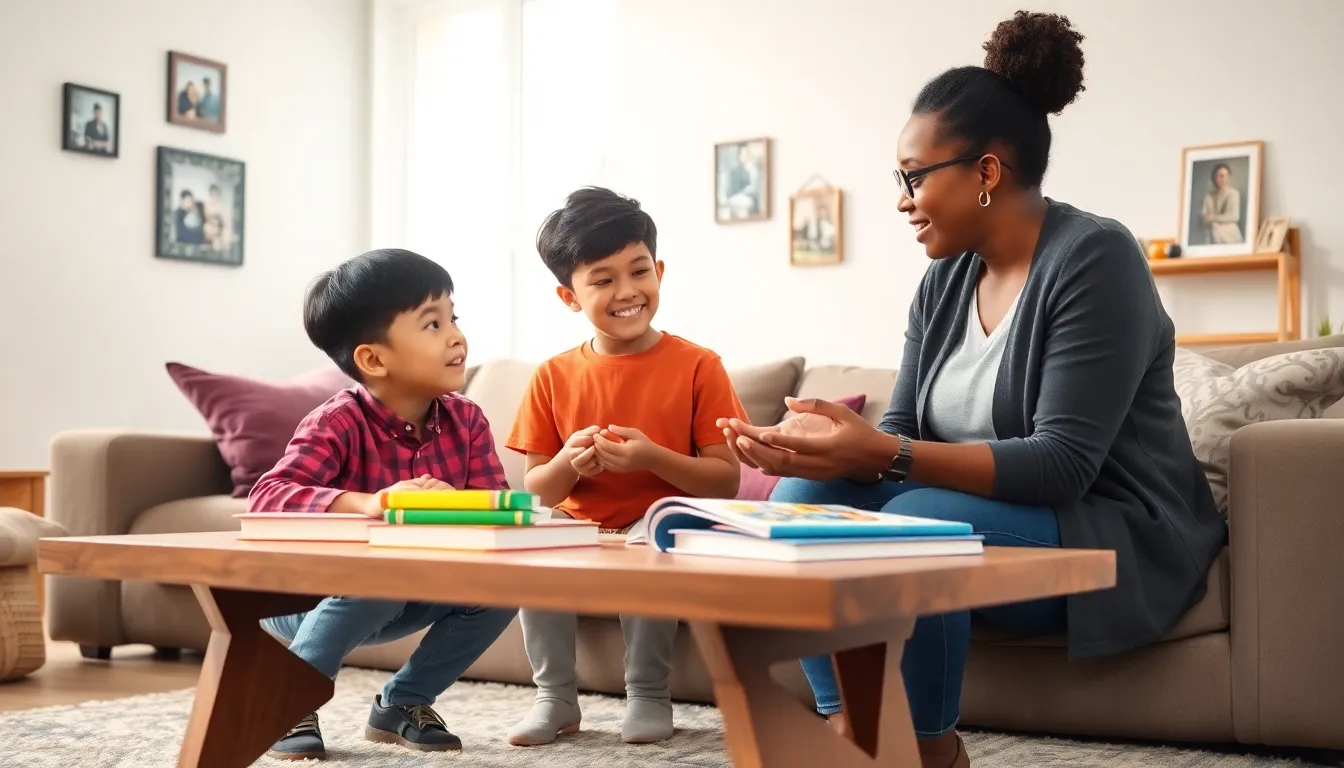Table of Contents
ToggleIn a world awash with parenting styles, authoritative parenting often struts around like the prom queen crowned with glory. But before you start taking notes from your favorite parenting guru, let’s jump into the sparkling pros and shadowy cons of this approach. Spoiler alert: it’s not all hugs and high-fives. Read on if you’re ready to understand whether the authoritative style is the key to raising well-rounded kids or just another parenting fad that sounds great in theory but flops in real life.
Understanding Authoritative Parenting

Authoritative parenting sits comfortably between permissive and authoritarian styles. It combines responsiveness with high expectations. Picture a strict teacher who also happens to be your biggest cheerleader. This parenting style emphasizes warmth, communication, and setting clear boundaries, which allows children to thrive both emotionally and socially. A child raised under authoritative practices typically enjoys an environment where they can express their thoughts, resulting in a cooperative relationship built on mutual respect.
Pros of Authoritative Parenting
Enhanced Emotional Development
One of the standout benefits of authoritative parenting is its ability to foster emotional intelligence. Children often feel secure when their parents provide consistent rules alongside nurturing. As a result, they learn to manage their feelings, develop empathy, and navigate social situations effectively. Such development can lay the groundwork for strong emotional connections that last a lifetime.
Improved Academic Performance
Research continually highlights a correlation between authoritative parenting and better academic outcomes. Children raised under this style tend to show higher levels of motivation and self-discipline. They understand the importance of effort because their parents set clear expectations. Hence, rather than simply focusing on grades, these children cultivate a genuine love for learning.
Stronger Parent-Child Relationships
Nothing bonds families quite like an environment built on trust and open conversation. Authoritative parents encourage dialogue, allowing children to voice their opinions and feelings. This leads to a more profound connection. With parents who listen and respond thoughtfully, children feel valued, which in turn enhances respect and understanding.
Cons of Authoritative Parenting
Potential for Over-Discipline
While consistency can be beneficial, there’s a thin line between structure and rigidity. Sometimes, authoritative parents may inadvertently over-discipline their children in the name of maintaining expectations. This could lead to resentment and rebellion, especially if children feel stifled or overly controlled.
Balancing Authority and Freedom
Authoritative parenting calls for a balancing act that can strain even the most seasoned parents. On one hand, parents want their children to thrive with freedom: on the other, they must enforce boundaries. This conflict might leave parents second-guessing themselves, which can confuse children about their limitations and freedoms.
Cultural Variations in Effectiveness
Another aspect to consider is that not all parenting styles translate across cultures effectively. What works wonders in one society may not resonate in another. For instance, in collectivist cultures, a more authoritarian approach may be favored over authoritative practices. So, parents must tread carefully and consider their cultural context when deciding on their approach.







